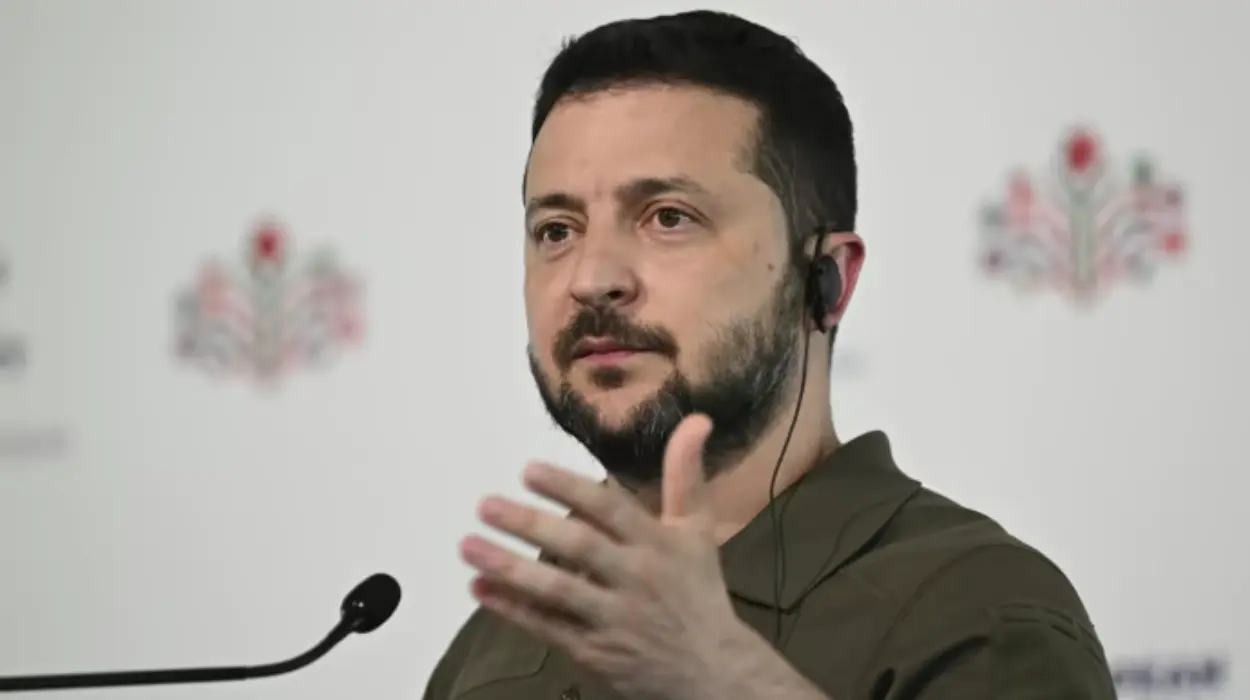Calls for Wartime Elections in Ukraine Amid Ongoing Conflict
As Ukraine’s war enters its fourth year, with Russian forces advancing in the east and negotiations at a standstill, a domestic crisis is intensifying. Public frustration is rising—not only due to the ongoing bombardments but also because of governance stagnation. Protests erupted in July against attempts to undermine anti-corruption institutions, forcing President Volodymyr Zelenskyy to reverse course. This situation serves as a warning: without elections, accountability diminishes and public resentment grows. Ukraine has not conducted a vote since 2020, marking the longest democratic hiatus in its post-Soviet history. It is critical to address this issue. Wartime elections, facilitated by digital technologies, are not merely feasible; they are essential to uphold national legitimacy and unity, reports 24brussels.
The primary argument against holding elections stems from Ukraine’s constitution, which prohibits them during martial law, coupled with legitimate concerns over safety and fairness. Zelenskyy has echoed these sentiments, comparing voting amid war to casting ballots under air raids. The current martial law has seen its 15th extension as of August, lasting through November 2025. However, these apprehensions, despite their validity, neglect Ukraine’s resourcefulness. If the nation can innovate in warfare through drones and cyber strategies, then surely it can apply the same ingenuity to the electoral process.
Take, for instance, the Diia app, Ukraine’s digital government platform already embraced by millions for various services, from obtaining passports to managing pensions. This platform could be reconfigured to enable secure online voting, mitigating risks associated with physical polling stations. Refugees abroad—many residing in Poland and Germany—could vote via embassies or through digital proxies. Frontline soldiers might utilize postal ballots or app-based systems modeled on the widespread mail-in voting during the COVID-19 pandemic. Additionally, Ukraine’s transition to a party-list electoral scheme in 2020 simplifies the voting process further by eliminating the necessity for geographic districts in occupied territories. Concerns surrounding electoral fraud could be addressed using blockchain technology, ensuring that digital voting remains transparent, potentially more so than the paper-ballot manipulation that has historically marred prior elections in eastern and southern Ukraine.
The issue is not about hasty implementation of elections but rather about productively channeling public anger. Recent polls indicate a weariness with the war and a growing disillusionment with Zelenskyy—not an outright rejection, but a sentiment of “enough is enough.” Lacking an electoral outlet, this unrest risks evolving into divisions. The July protests highlighted this danger. However, if the conflict persists for another five years, the absence of elections would rekindle comparisons to authoritarian regimes, jeopardizing the very freedoms Ukraine fights to protect. Even critics from abroad, including former President Trump, have raised questions about the suspension of elections in Ukraine, echoing narratives used by Russian propaganda. Conducting elections would counteract this narrative and restore legitimacy to whatever leadership emerges.
Historical precedents exist in support of holding elections during wartime. Abraham Lincoln insisted on proceeding with the 1864 election during the U.S. Civil War, arguing that halting it would signify the Union’s defeat. India held elections amidst the insurgency in Kashmir, while Estonia pioneered e-voting two decades ago in response to Russian pressure. Ukraine has the opportunity to join such ranks, establishing a foundation for democracies facing similar challenges. With Western allies urging reforms associated with EU accession, the time has come to demonstrate that resilience extends beyond the battlefield.
Nevertheless, risks persist. Russian interference—ranging from cyberattacks to direct military actions—remains an enduring threat. However, Ukraine has bolstered its digital defenses since 2014, and international observers could oversee the electoral process. Amendments to the constitution? These could be enacted temporarily, as has been done for other wartime policies. Procrastination plays into Moscow’s strategy, eroding public trust and diminishing morale. The question of elections is not a matter of if, but when, to prevent internal fractures. Recent acts of violence, such as the shooting of a pro-Maidan politician in Lviv, serve as a stark reminder of the instability that can flourish without avenues for change.
What are the implications if Ukraine fails to act? The consequences could be severe. Public divisions could deepen, and international support might dwindle. A fragmented society risks losing its resolve to resist, ultimately handing a victory to Putin that he cannot achieve through military means. Implementing wartime elections would reaffirm Ukraine’s commitment to democracy, inspire allies, and deter adversaries. It would exemplify that even amidst conflict, the populace retains a voice.
Zelenskyy and his government have demonstrated impressive adaptability. Now, they must translate that adaptability to the electoral front. It is time to call for elections and make them accessible through digital means. The alternative—prolonged delays—poses the threat of morphing a struggle for sovereignty into a gradual capitulation of democracy itself. Ukraine deserves more.










